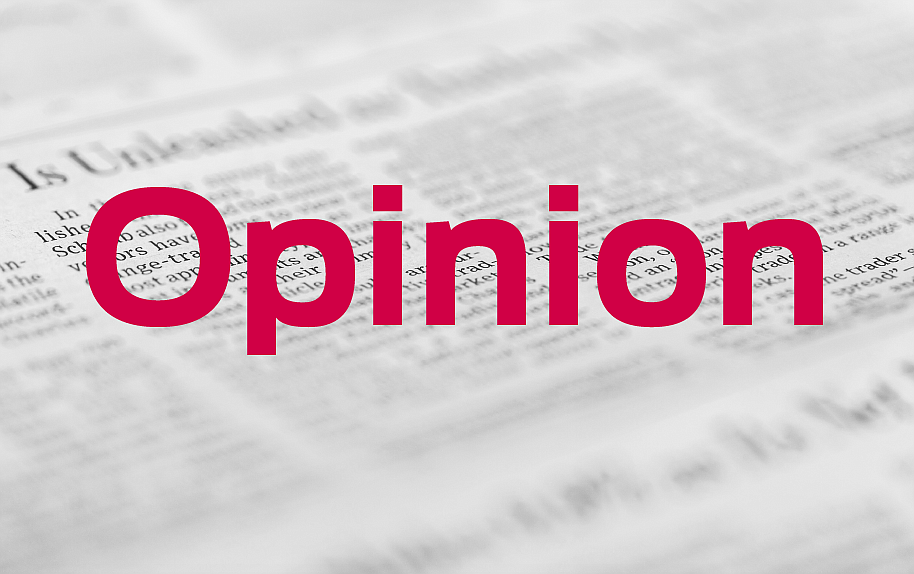- May 15, 2025
-
-
Loading

Loading

No one knows how serious the final toll of COVID-19 on lives and health will be, but it certainly looks frightening. So does the economic impact.
Already more than 22 million people nationwide have filed for unemployment benefits because of the crisis. The federal government rolled out a debt-funded $2.3 trillion stimulus package intended to boost the economy and are talking about doing more. With interest, that is going to be a hefty bill.
Likewise, no one knows how the economy will recover — quickly or slowly, though conditions are moving toward the latter.
The economic shock from COVID-19 is like the straw that breaks the camel’s back — the camel was already overloaded before the last piece brought it down. Bad financial management by the federal government, states, corporations and even individuals already overloaded the poor camel. We all acted like nothing bad would ever happen. But, of course, something bad — like a war, a banking crisis or a pandemic — inevitably happens.
We did not do the responsible thing and plan for that inevitable thing. And now we will pay, with interest.
Prior to the 2007-2009 recession, the federal government was running around $500 billion of deficit spending each year. In response to the recession, President Barack Obama and the Congress promptly jacked that annual deficit spending up to around $1.5 trillion per year.
But then came the 10-year period of economic growth, and Congress kept deficit spending around $1 trillion per year. Deficit spending is not stimulus if it is business as usual.
Meanwhile, state and local governments used the economic boom to go on a spending spree, but only a handful chose to reduce their more than $5 trillion in debt for government worker pensions or their nearly as massive debts for government worker health care.
Nor did they invest the boom revenues in building infrastructure or other long-term investments or building robust rainy-day funds. Mostly they used it to grow their workforce and programmatic spending.
And now they are in no position to weather this economic shock without either big tax hikes — hard to come by in an economic crisis — or big spending cuts.
The private sector was just as irresponsible. Ten years of economic growth and profits led to some investment in innovation, of course but not to building resiliency for the inevitable next economic shock.
Within a couple of weeks of dropping air travel, airlines were begging for bailouts, maybe because they spent the past 10 years buying back stock and making other short-term plays, and some long-term investments, but not building reserves to smooth out operations as the economy ebbs and flows.
And it’s not just the airlines. Industry after industry is demonstrating no ability to handle this shock even over a span of mere weeks. None seems to have thought about or planned for inevitable economic hard times.
But as we always seem to do, the federal government will bail them out. And that will create more zombie companies — those with so much debt that they don’t generate enough money to even pay the interest they owe.
In the 1990s, globally, only 2% of private companies were zombies. Now, 12% of companies are zombies globally. In the U.S., it’s even worse — 16% of companies are zombies, according to the Bank of International Settlements.
That is largely because of the bailouts and subsidies put in place during the last recession. We’re tying up vast sums of capital in companies that will never make money, instead of letting them fail and letting that capital move on to new businesses that have a chance.
So, in the current economic downturn, most of government rescue spending is flowing to corporations that failed to save in high-profit times, while low-income workers who cannot save much and survive are given crumbs in comparison.
Individuals who do make enough to save were also irresponsible. They didn’t do anything sensible like increase savings during the 10 boom years. Average personal savings returned to their normal 8% of income or so, not enough to cover retirement, let alone cover the challenges of an inevitable economic downturn.
From top to bottom, this nation spent 10 years being fiscally irresponsible, pretending the economy would never experience another shock or downturn.
Everyone I’m talking about here is an adult, who has lived through at least one recession, and most have been through two or more. They all know perfectly well that downturns eventually happen. Yet they promptly pushed that pesky thought out of their heads and merrily spent, spent, spent.
We have met the problem, and it is us.
Adrian Moore is vice president of the Reason Foundation and a resident of Sarasota.